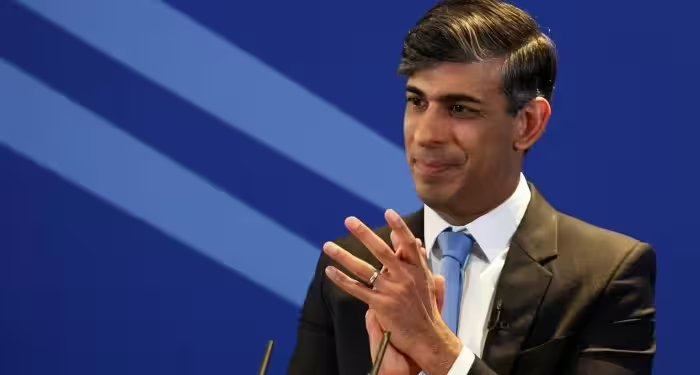Rishi Sunak, the Chancellor of the Exchequer, finds himself embroiled in a deepening controversy surrounding a betting scandal tied to the upcoming Westminster election. The situation has sparked widespread concern and calls for transparency from both political rivals and within his own Conservative party ranks.
The saga began when it was revealed that Craig Williams, a close aide to Sunak, was under investigation by the Gambling Commission for placing a £100 bet on the election’s date just days before Sunak’s surprise announcement. This revelation set off a chain reaction, drawing in more figures associated with Sunak and the Conservative party.
Laura Saunders, a Tory candidate, and her husband Tony Lee, the party’s campaign director, were also named in the inquiry. Additionally, Nick Mason, responsible for the party’s data operations, came under scrutiny for multiple bets placed ahead of the election announcement. Even more startling, an unnamed Metropolitan police officer from Sunak’s security detail was arrested in connection with the investigation, highlighting the breadth of the probe.
The scandal intensified with reports that Mason had placed numerous small bets, potentially accumulating significant winnings upon the election’s confirmation. Despite denying any wrongdoing through a spokesperson, Mason and Lee opted to take leaves of absence from their respective roles pending further developments.
Labour Party officials wasted no time in pressing for accountability. Pat McFadden, Labour’s national campaign coordinator, urged the Gambling Commission to disclose all individuals under investigation, arguing it was in the public interest to know the extent of the involvement.
Amid growing pressure, senior Tories also joined the chorus, advocating for the suspension of implicated individuals pending the investigation’s outcome. Former Justice Secretary Robert Buckland emphasized the importance of consistency in handling such matters, suggesting that even candidates on the ballot should face consequences if found guilty.
The controversy has cast a shadow over Sunak’s leadership, with critics accusing the Conservative party of failing to uphold standards in public life. Anne Milton, a former Conservative MP, criticized the lack of leadership and called for immediate suspensions pending investigation outcomes, highlighting the seriousness of the allegations.
The situation drew parallels to previous political scandals, such as Partygate, where perceptions of double standards and ethical breaches further eroded public trust in government officials. Michael Gove, the levelling up secretary, acknowledged the damaging impact of such scandals on public perception, stressing the need for consistent adherence to rules and regulations.
In response to mounting criticism, Sunak expressed his anger over the allegations and pledged severe consequences for any wrongdoing. He vowed to eject any guilty party from the Conservative party, aiming to reassure the public of his commitment to integrity and accountability.
The Liberal Democrats added to the pressure, calling for a comprehensive inquiry into the scandal, asserting that the issue had evolved into a full-blown crisis for Sunak’s leadership.
As the controversy unfolds, questions remain about the extent of involvement within the Conservative party and whether additional figures will be implicated in the ongoing investigation. The Gambling Commission, tasked with unravelling the complexities of the case, remained tight-lipped on specific details, citing the sensitivity of the ongoing probe.
The election betting scandal has not only tarnished the reputations of key Conservative figures but also raised broader concerns about ethics and transparency in political circles. With public scrutiny intensifying and pressure mounting from all sides, the coming days may prove pivotal for Sunak and his ability to manage the fallout from this unfolding crisis.
















